PETERSON AIR FORCE BASE, Colo. - Army Lt. Col. Robert S. Kimbrough proved he had the 'right stuff,' completing his first flight into space aboard the Space Shuttle Endeavour as part of STS-126 mission in November after four years of intensive astronaut candidate training.
Kimbrough is the junior member of the Army's National Aeronautics and Space Administration Detachment located in Houston, Texas. The detachment currently has four active duty Army Astronauts on its roster.
Kimbrough served as a mission specialist along with shuttle crewmembers Navy Capt. Stephen G. Bowen, Navy Capt. Heidemarie M. Stefanyshyn-Piper, Donald R. Pettit and Sandra H. Magnus. Navy Capt. Christopher J. Ferguson commanded the STS-126 mission and Air Force Lt. Col. Eric A. Boe served as the pilot.
The STS-126 mission featured important repair work and prepared the International Space Station to house six crewmembers on long-duration missions beginning in 2009. The new station equipment includes a water recovery system, additional sleeping quarters, a second toilet and an exercise device.
During four spacewalks, the crew serviced the station's two Solar Alpha Rotary Joints, which allow its solar arrays to track the sun, and installed new hardware that will support future assembly missions.
In a NASA interview in early November, Kimbrough explained how the opportunity arose to become an astronaut during his military career by saying, "I was lucky enough to get called to come down to Johnson Space Center as a major in the Army to just work a technical job down here which happened to be out at Ellington Field (Houston)."
"I was flying the shuttle trainer aircraft and helping train the pilot and commanders on how to land the space shuttle, so that was a neat deal. And then after that I just stayed here and I was lucky enough to get picked up in the 2004 astronaut class."
Asked how his Army background will help in the role of being an astronaut during this mission Kimbrough said, "I think my operational background is really what most Army folks kind of bring to the table here at NASA and that's really what I'm going to draw off of, just being in an operational environment, whether that's in my case helicopters or whatever - actually doing real time operations in some pretty tough situations not always nominal. I think that's what we bring to the table and what I'm going to draw off of for my mission."
And Kimbrough got his chance to do that on the evening of Nov. 14th as he, along with fellow crewmembers Stefanyshyn-Piper, and Magnus took their assigned seats on the lower level of the shuttle's crew compartment prior to launch.
At 6:07 p.m. MST Endeavour lifted off from Launch Pad 39A at NASA's Kennedy Space Center in Florida for a rendezvous with the International Space Station early on the morning on Nov. 16.
With the opening of the shuttle and station hatches both crews exchanged the traditional greetings prior to getting down to the busy work schedule that lay ahead of them.
On Nov. 17 Kimbrough and Pettit used the Canadarm2 robotic arm to move the Multi-Purpose Logistics Module named Leonardo into position for installation on the Earth-facing port of the space station's Harmony node.
Leonardo contained systems which were installed in the U.S. Destiny lab and Harmony node, such as: two water recovery systems racks for recycling urine into potable water, a second toilet system, new galley components, two new food warmers, a food refrigerator, an experiment freezer, a combustion science experiment rack, two separate sleeping quarters and a resistance exercise device.
The first space walk to service the International Space Station took place on Nov. 18 with Kimbrough serving as the intravehicular officer guiding fellow crewmembers Stefanyshyn-Piper and Bowen during their excursion.
Kimbrough then got ready for his turn outside with crewmember Stefanyshyn-Piper on the evening of Nov. 19 as he spent the night in the Quest airlock. The stay lessened the preparatory time before beginning his scheduled space walk on the afternoon of Nov. 20, the 10th anniversary of the International Space Station.
It would be another four days before Kimbrough would venture out for his second space walk, and the final one of STS-126 mission, with Bowen on Nov. 24. Total time for both of his space walks amounted to almost 13 hours at 122 nautical miles above the Earth.
With an extra day added to the mission and the crew's work done, both shuttle and International Space Station crews packed up the Multi-Purpose Logistics Module and placed it back aboard Endeavour for the trip back home on Nov. 26.
The shuttle and International Space Station crews then took time out for a Thanksgiving Day celebration high above the Earth prior to saying their goodbyes and undocking the next day.
Due to threatening weather in Florida, the Space Shuttle Endeavour landed at Edwards Air Force Base in California at 4:25 p.m. EST Nov. 30, ending the STS-126 mission to the International Space Station. The shuttle traveled over 6.6 million miles in space on its 16-day journey.
With his first successful space flight complete Kimbrough gave some advice to the youth of America by stating, "You're going to be the next generation of leaders in our country or in our world. It's all in your hands and that's a big responsibility. But if you folks challenge yourselves, with the technology out there, there's really no limit to what you can do."
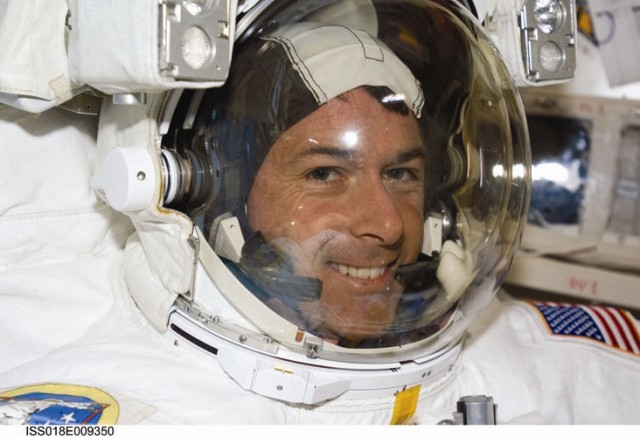
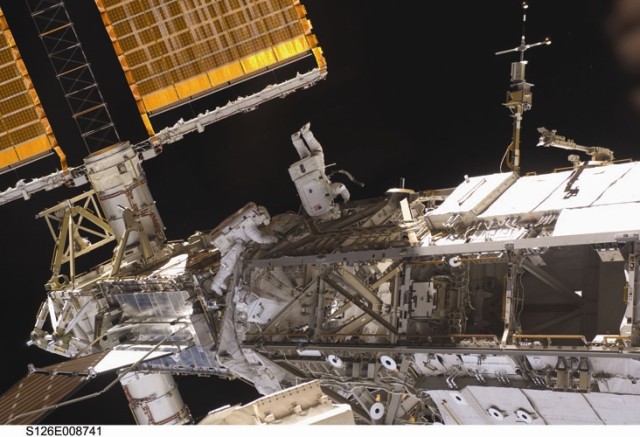
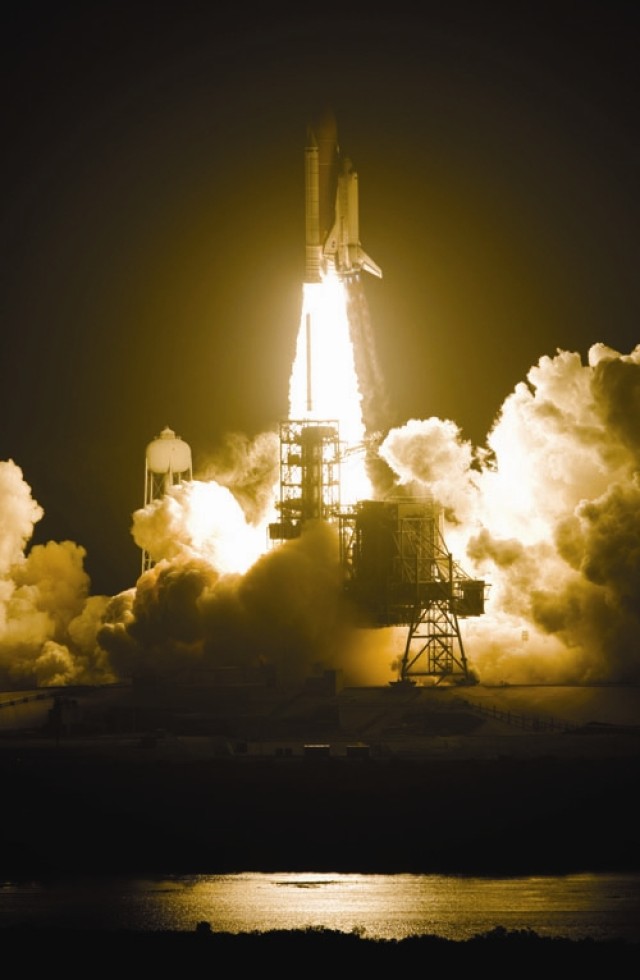
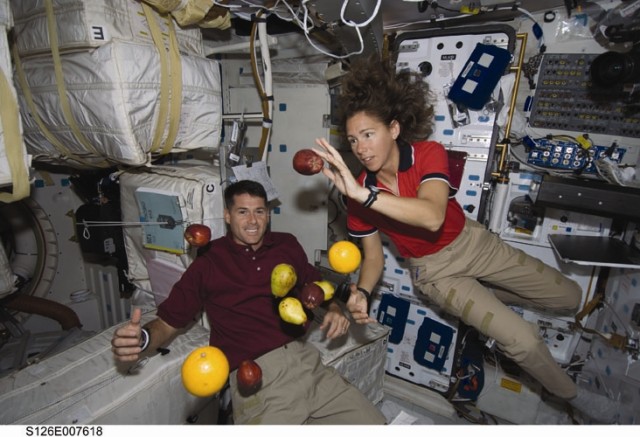
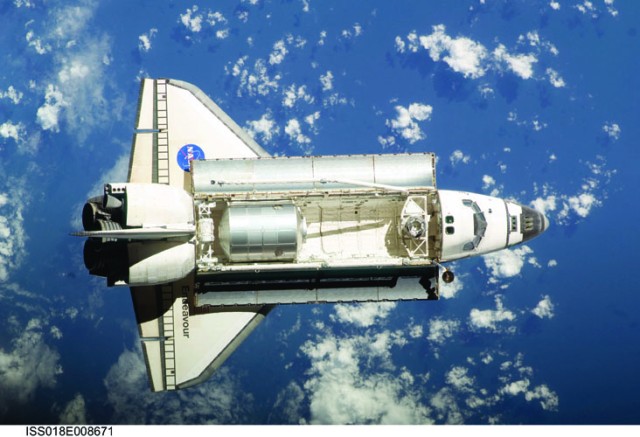
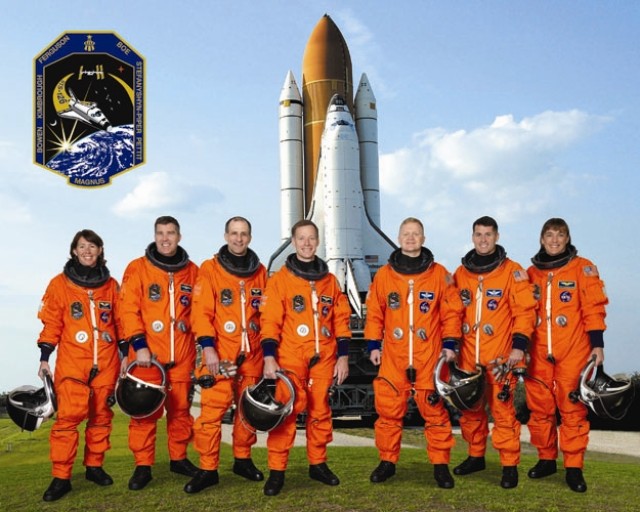
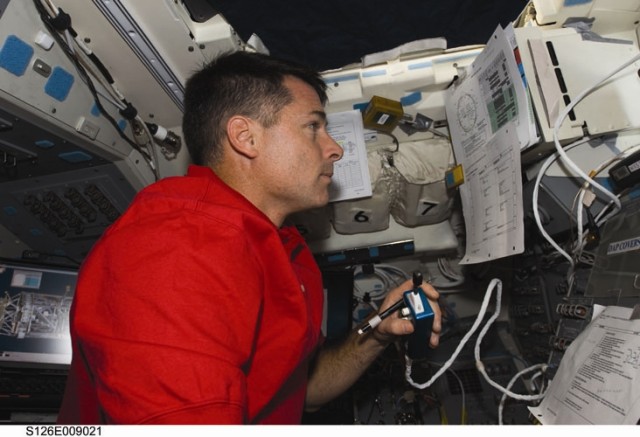
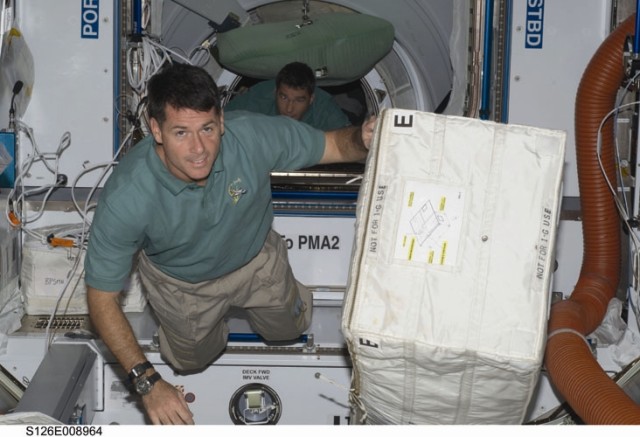
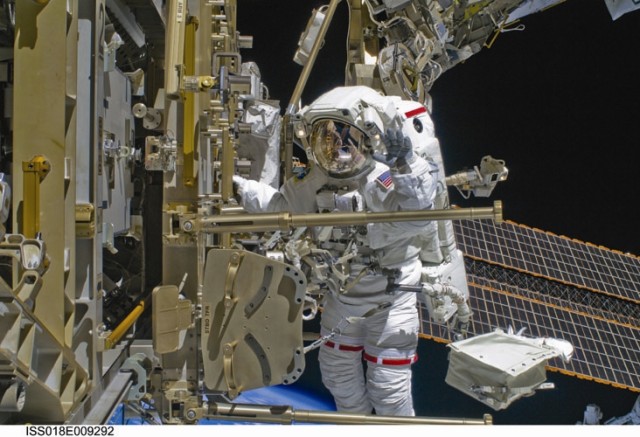
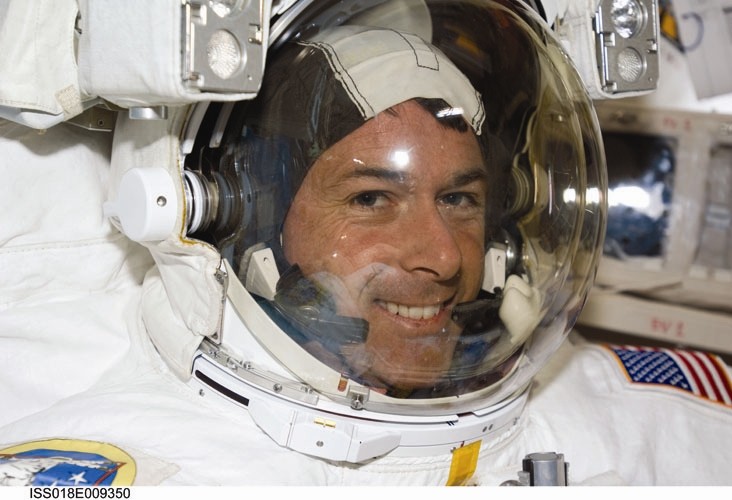
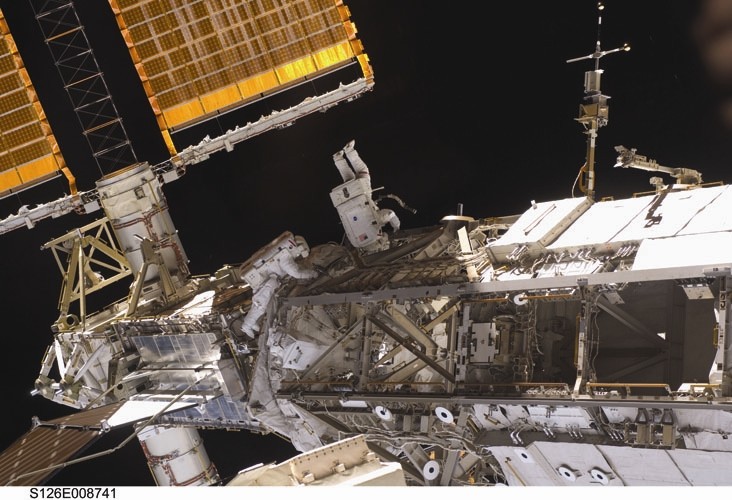
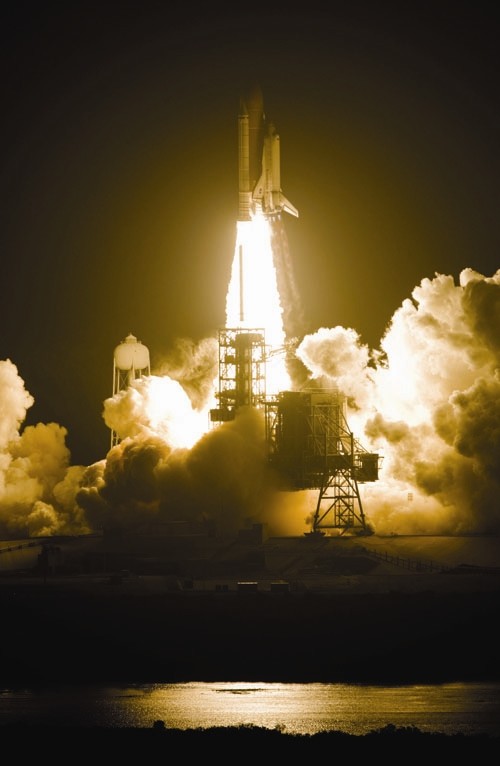
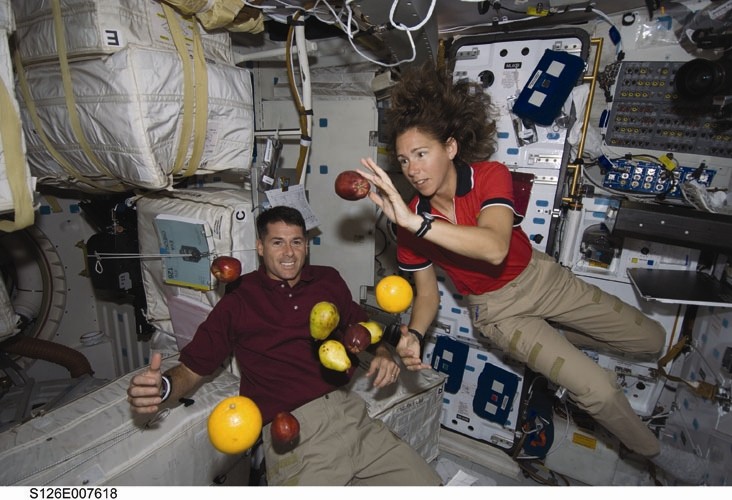
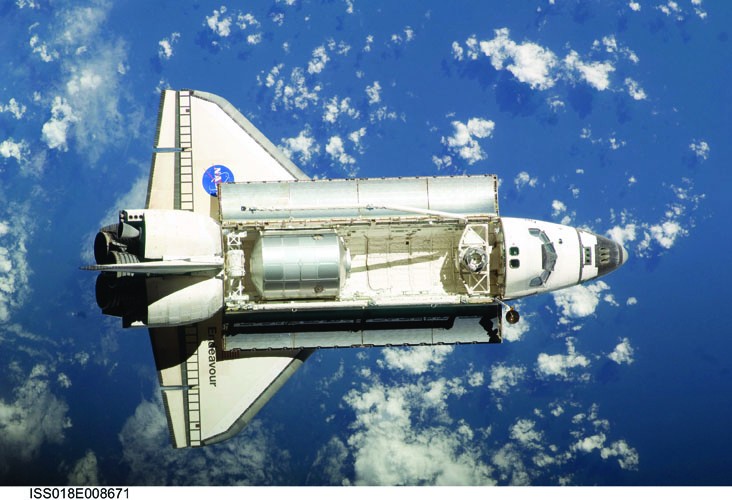
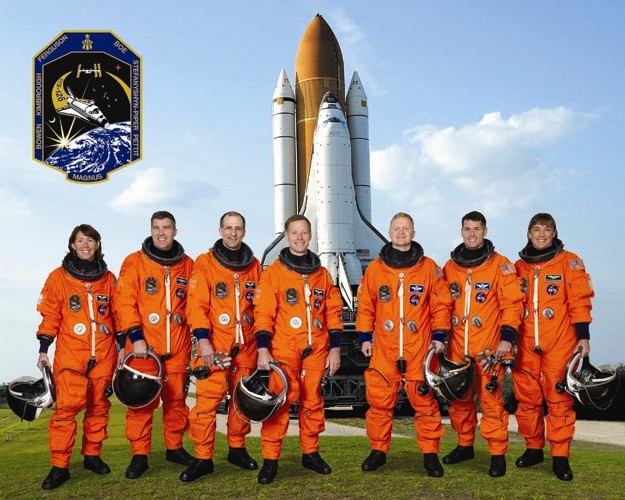
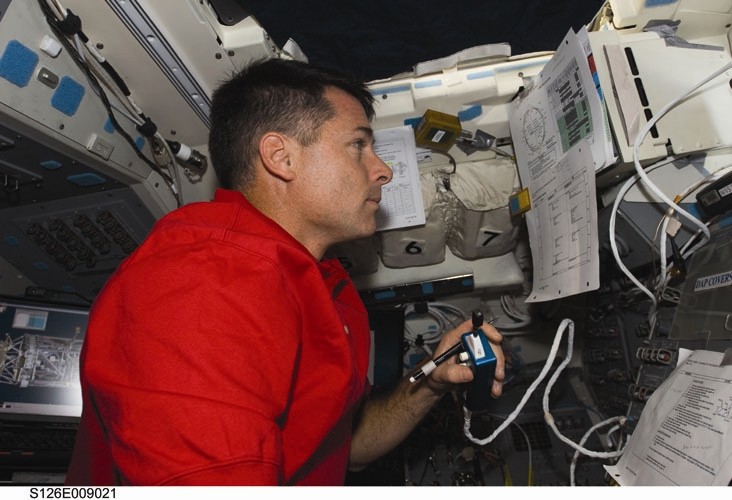
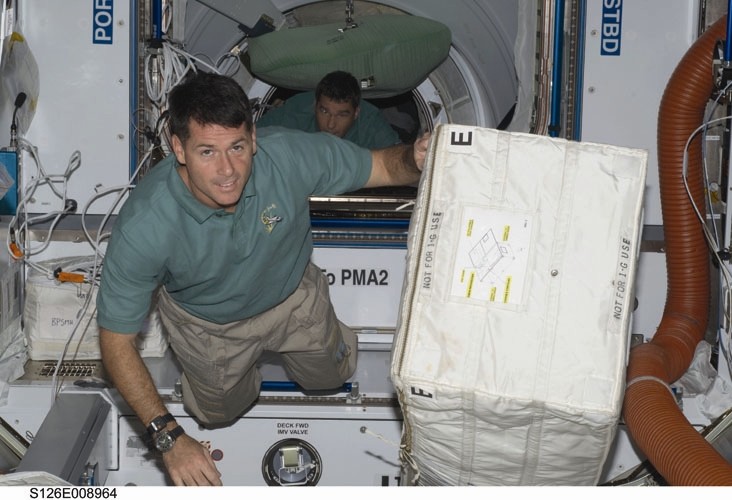

Social Sharing